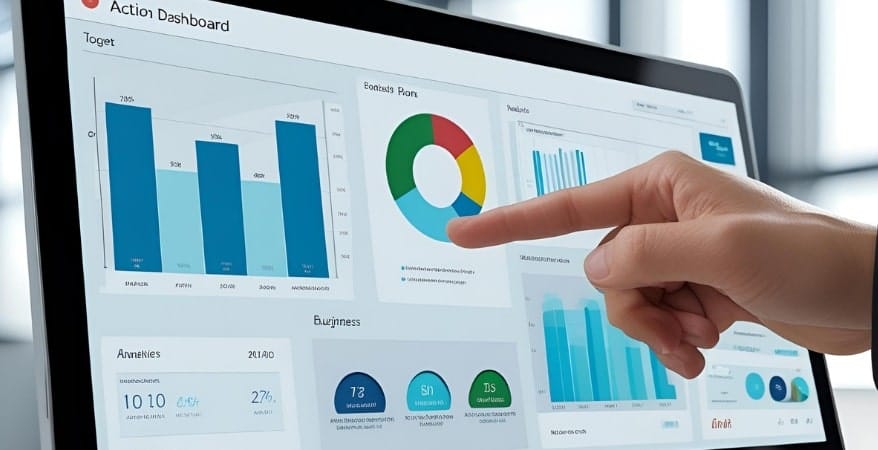In an era of relentless technological innovation, the Chief Operating Officer (COO) is no longer confined to traditional operations management. Today’s high-performing COOs are becoming architects of transformation—integrating AI, automation, and advanced data analytics to future-proof their organizations. At JRG Partners, we’ve seen firsthand how forward-thinking operational leaders are reshaping the business landscape, becoming strategic partners in innovation, agility, and sustained growth.
The Modern COO: From Operator to Transformer
Historically, the COO’s domain centered on supply chains, logistics, and internal process optimization. However, that paradigm is shifting. The COO of tomorrow is a technology-enabled, data-driven strategist who partners with the CEO to steer the company through digital evolution. This transformation is driven by the urgent need to adapt to:
- Rapidly changing customer expectations
- Disruptive competitors using AI and automation
- The pressure for cost efficiency and operational scalability
The next-generation COO is expected to blend operational excellence with digital fluency, bridging gaps between innovation and execution.
Embracing AI and Automation as Strategic Tools
Artificial Intelligence (AI) and automation are not just buzzwords—they are critical tools for modern operations. Today’s COOs must understand how to embed these technologies into the fabric of their organization:
- AI-powered decision-making: Predictive analytics can forecast demand, detect supply chain risks, and identify operational inefficiencies.
- Process automation: Robotic Process Automation (RPA) can streamline repetitive tasks, reduce errors, and free up teams to focus on strategic work.
- Smart supply chains: AI enables real-time tracking, dynamic routing, and adaptive inventory management, leading to improved customer satisfaction and cost savings.
The COO of the future sees AI not as a replacement for talent but as a force multiplier—empowering people with tools that increase speed, accuracy, and agility.
Data-Driven Decision Making: From Gut Feeling to Ground Truth
In the past, operational decisions often relied on experience and instinct. While those elements remain valuable, modern COOs need real-time, actionable insights to navigate increasingly complex environments. Leveraging:
- Real-time dashboards
- Predictive modeling
- Performance analytics
COOs can now make faster, more informed decisions that drive measurable results. This data-centric approach fosters transparency and creates a culture of accountability across business units.

Building Operational Resilience and Agility
Volatility—whether economic, geopolitical, or environmental—demands operational resilience. Tomorrow’s COO must lead initiatives that strengthen the organization’s ability to adapt and recover. This includes:
- Flexible operating models that accommodate hybrid work, decentralized teams, and fluctuating demand
- Cloud-based infrastructure to support business continuity and scalability
- Scenario planning to prepare for market disruptions before they hit
At JRG Partners, we’ve helped numerous executive teams identify and recruit COOs with these forward-thinking capabilities, recognizing that agility and foresight are now indispensable C-suite traits.
Talent and Culture: The Human Side of Tech Transformation
Technology transformation is not solely a technical endeavor—it’s a people-first journey. The COO must be a change agent, championing cross-functional collaboration and fostering a culture of innovation. Responsibilities include:
- Upskilling teams to work effectively with new technologies
- Leading digital adoption efforts across departments
- Instilling a mindset of continuous improvement and learning
Visionary COOs ensure that technology and people grow together, reducing resistance and increasing buy-in across the organization.
Preparing for What’s Next: Recommendations for CEOs and Boards
For CEOs and boards, preparing for the COO of tomorrow starts with aligning expectations and investing in the right leadership talent. We recommend:
- Reevaluating the COO role to reflect new priorities in digital transformation and resilience.
- Recruiting COOs with hybrid skill sets—deep operational expertise plus technological fluency.
- Encouraging innovation from the top down, with cross-functional collaboration between the COO, CIO, CDO, and other tech-forward leaders.
- Tracking emerging technologies and evaluating their operational impact regularly.
At JRG Partners, we specialize in identifying high-impact executive leaders who drive value in complex, tech-enabled environments. Our approach aligns business strategy with leadership acquisition—ensuring your COO isn’t just ready for tomorrow but is actively shaping it.
Conclusion: The Future Belongs to the Bold
The COO role is undergoing a profound evolution—from operations manager to strategic innovator. Those who embrace emerging technologies, champion agile practices, and foster human-centered digital transformation will lead their companies to enduring competitive advantage.
As a CEO, board member, or senior executive, the time to invest in the COO of tomorrow is now. Partner with JRG Partners to find the visionary operational leaders who will guide your organization through this next frontier of business transformation.


